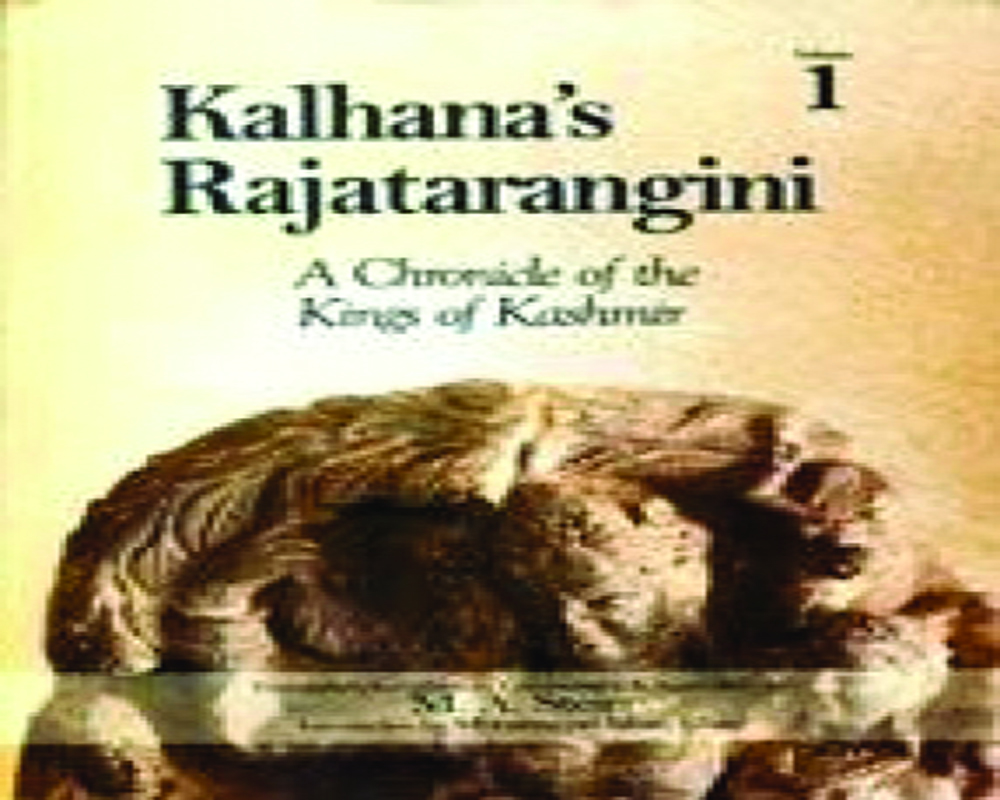The flame of Sanskrit studies in the State was kept alive in modern times by scholars like Zadoo, Kamal and Parmanand. One hopes the current generation will keep it lit
Sanskrit is an all-India language. All parts of this land have contributed to its great ancient literature and none can claim a special place in this regard. Even so, the contribution from Kashmir over centuries is quite remarkable — in quality and variety as well as value and volume. Once well-known all over this country and beyond, it now deserves renewed notice, especially in today’s conditions.
One may begin with a relatively recent work, the ‘Kathakautukam’ by Srivara from 15th century Kashmir. Written after the arrival of Islam, it is based on a famous Farsi or Persian love poem about Yusuf and Zuleikha, also a parable of the human seeking the divine. A remarkable example of cultural confluence, apart from prayers to Hindu gods, it also invokes the founder of Islam as “paigambar shiromani” or the crown jewel of prophets. Its first translation has just appeared as ‘A Tale of Wonder’, an example of the vast range of Sanskrit literature from Kashmir.
Another example is of this literature’s interaction with the rest of India. This is seen in the works by the four celebrated scholars from Kashmir: Kalhana, Bilhana, Shilhana and Jalhana. The first alone is better known at present. He lived in 12th century Kashmir where he wrote the famous ‘Rajatarangini’ which has had several modern translations, including one by RS Pandit, the brother-in-law of Jawaharlal Nehru. The original is a work of history, including earlier mythology but also Ashoka’s patronage of Buddhism, and the later Kusana kings. From the seventh century onwards, it is mostly a factual record, also mentioning the help sent from Kashmir to Afghan king Trilochanapala when he faced an invasion by Mahmud Ghazni.
Bilhana was also a great poet from Kashmir in the same century. But he travelled south where he was a court poet in Kalyana, in present day Karnataka. There he composed another respected history in Sanskrit, ‘Vikramankadeva Charita’, about the rulers of that land, as also the famous love lyrics of ‘Chaurapanchasika.’ Shilhana was a later poet who went to Bengal and wrote the ‘Shantishataka’ verses on peaceful living. Finally, Jalhana in the 13th century went from Kashmir to Ajmer where he wrote a history of its rulers upto Prithviraj Chauhan who was defeated by the Ghoris from Afghanistan. This history ends with the first battle where he was victorious and is titled ‘Prithvirajavijaya’, a work little known now. These examples would indicate the spread of Sanskrit scholars from Kashmir over much of the country, as also their role as writers of history. But the history of Sanskrit there is much older. The earliest Kashmir text at present is ‘Nilamata Purana’ of about sixth century AD. It also shows that the language was by then already developed there.
The literature is best described in categories of works: Historical, technical, philosophic and religious as also general. All are touched on here. Famous works of each category are still available and admired, but are little-known.
History writing in Sanskrit precedes Kalhana, who mentions several earlier writers. His own famous work was continued with the same name by four scholars at different times. The second historian, Jonaraja of the 15th century, also covers the arrival of Islam in Kashmir. The third was his pupil Srivara who further describes the golden age of king Zainul Abidin and his successors. That history was continued by the other two till the Mughal conquest.
Technical writing includes Sanskrit grammar and composition to which there were important contributions from Kashmir. In the seventh century was the work ‘Kashika Vritti’, the use of which by Chinese students was noted by the pilgrim I-tsing. Another was ‘Chandra Vyakarana.’ The best known today is the 12th century ‘Kavya Prakasa’ by the Kashmir scholar Mammata, which is still in use due to its comprehensive coverage of Sanskrit poetics, with no less than 75 commentaries since it was written.
Poetics, the study of literature as an art with its merits and defects, appears to have been one where Kashmir’s contribution to Sanskrit was the most widespread, with numerous distinguished names like Anandavardhana and Abhinavagupta among the contributors. As for religious and philosophical works, one may mention the savants who initiated what came to be known as Kashmir Shaivism. The chief name here is Vasugupta to whom, according to legend, ‘Shiva Sutra’ was revealed on a mountain. He was followed by Somanada, author of ‘Shiva Drishti’ in the 12th century and his disciple Utpaladeva, who wrote the well-known ‘Ishwara Pratyabhijna’ still used by devotees of this idealistic monism.
Finally, it is pertinent to mention something about the general literature in Sanskrit from Kashmir. The best know today is ‘Kathasaritsagara’, stories written by Somadeva for the then queen in Kashmir. Others worth noting are the 11th century satires of Kshemendra on social conditions. But Kashmir’s contribution to Sanskrit satire is little- known now. The flame of Sanskrit studies in Kashmir was kept alive in modern times by scholars like Jagaddhar Zadoo, Janakinath Kaul Kamal and Parmanand. One hopes the present generation will take interest to keep it lit. The literary treasure house of Kashmir still needs more public recognition for the gems within it.
The writer is a former diplomat and a translator of Sanskrit classics. The views expressed are personal.



























